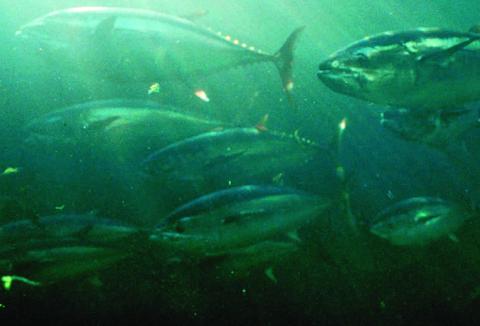The Open Ocean Trustee Implementation Group (TIG) is implementing a project to help restore pelagic fish in the Gulf. This project will benefit the Gulf of Mexico in the short- and long-term and will compensate for impacts from the spill.
Many Gulf oceanic fish, eggs, and larvae were injured by the oil and chemicals used for cleanup. Species injured include pelagic (or open-ocean) fish such as tuna, billfish, sharks and mackerel.
We are working with the National Fish and Wildlife Foundation to help restore these fish populations by reducing fishing mortality. This will allow fish to grow and reproduce, helping support healthier populations of fish throughout the Gulf.
The project will establish a temporary, voluntary, six-month repose period each year of the project, which is expected to last five to ten years. During this repose period, participating vessel owners will refrain from pelagic longline fishing and will be financially compensated to offset their potential loss in revenue.
To help offset economic impacts of the repose, participants will be encouraged to fish for yellowfin tuna and swordfish using alternative gear. These gear types have been shown to result in low levels of bycatch and bycatch mortality. This will also provide an opportunity to study and improve the efficiency of alternative fishing gear over time.
The project is tailored to restore resources impacted by the 2010 Deepwater Horizon oil spill and does not affect existing management practices or regulations.
The project will be launched as a pilot, with a four-month repose period starting March 1, 2017. Interested pelagic longline vessel owners can learn more about this project or contact Kristin Byler at the National Fish and Wildlife Foundation for more information.
This is the first direct fish restoration project to be implemented by the Open Ocean TIG. An additional $380 million has been allocated for future fish and water column restoration projects.


